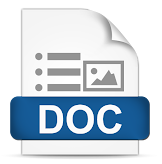Beyond Tangible Resources: Strategic Capabilities in Platform-Based Business Models
Sari
The transition from traditional asset-heavy business models to platform-based businesses highlights the increasing importance of intangible resources in sustaining competitive advantage. This study critically examines the limitations of the classic Resource-Based View (RBV), which traditionally emphasizes owned assets, and explores its adaptation to digital platform firms that leverage data, network effects, and strategic orchestration. Using a systematic literature review approach, the study identifies five core capabilities—ecosystem coordination, scalable digital systems, data-driven decision-making, user trust-building, and fast innovation cycles—as fundamental to platform success. Findings suggest that competitive advantage in the digital economy stems from managing rather than owning resources. This research contributes to the strategic management discourse by extending the RBV to incorporate orchestration and relational assets as critical determinants of success in platform-based business models.
Keywords: Resource-Based View (RBV); platform-based business models; digital capabilities; strategic orchestration; network effect.
Teks Lengkap:
PDFReferensi
Baden-Fuller, C., & Haefliger, S. (2022). Business models and technological innovation. Long Range Planning, 55(4), 102089. https://doi.org/10.1016/j.lrp.2021.102089
Barney, J. (1991). Firm resources and sustained competitive advantage. International Business Strategy: Theory and Practice, 17(1), 283–301. https://doi.org/10.1093/oso/9780199277681.003.0003
Barney, J. B. (2001). Resource-based theories of competitive advantage: A ten-year retrospective on the resource-based view. Journal of Management, 27(6), 643–650. https://doi.org/10.1016/S0149-2063(01)00115-5
Barney, J. B. (2020). Resource-based theories of competitive advantage: A ten-year retrospective on the resource-based view. Journal of Management, 27(6), 643–650. https://doi.org/10.1016/S0149-2063(01)00115-5
Bharadwaj, A., El Sawy, O. A., Pavlou, P. A., & Venkatraman, N. (2022). Digital business strategy: Toward a next generation of insights. MIS Quarterly, 46(1), 471–482. https://doi.org/10.25300/MISQ/2022/13724
Chaudhuri, S., & Ghosh, R. (2021). Revisiting firm competitiveness through resource orchestration. Strategic Management Review, 2(1), 41–60. https://doi.org/10.1561/111.00000006
Chen, J., & Wu, B. (2022). Digital platform capabilities and competitive advantage: Evidence from Amazon. Journal of Business Research, 138, 563–574. https://doi.org/10.1016/j.jbusres.2021.09.043
Donthu, N., Kumar, S., Mukherjee, D., Pandey, N., & Lim, W. M. (2021). How to conduct a systematic literature review: Contemporary approaches and guidelines. Journal of Business Research, 133, 285–296. https://doi.org/10.1016/j.jbusres.2021.01.056
Eisenmann, T., Parker, G., & Alstyne, M. W. (2020). Platform envelopment. Strategic Management Journal, 41(6), 1059–1078. https://doi.org/10.1002/smj.3040
Fraccastoro, S., Gabrielsson, M., & Pullins, E. B. (2021). The integrated use of digital channels to create customer value: A systematic review and research agenda. Industrial Marketing Management, 95, 120–135. https://doi.org/10.1016/j.indmarman.2020.12.020
Gawer, A. (2020). Digital platforms’ new rules of competition: Implications for antitrust. Strategy Science, 5(2), 82–99. https://doi.org/10.1287/stsc.2020.0100
Gawer, A. (2021). Digital platforms: A review of the literature and future directions. Journal of Business Research, 134, 297–312. https://doi.org/10.1016/j.jbusres.2021.05.058
Kang, S., & Lee, S. (2021). Platform business models: Theoretical foundations and future directions. Journal of Strategic Management, 42(7), 1127–1149. https://doi.org/10.1002/smj.3165
Khan, M., & Ali, A. (2024). Leveraging data for business growth in platform models. Journal of Digital Business, 6(2), 125–139. https://doi.org/10.1016/j.jdb.2023.10.002
Kraus, S., Durst, S., Ferreira, J. J., Veiga, P. M., & Kailer, N. (2022). Digital transformation in business and management research: An overview of the current status and future research directions. Journal of Business Research, 150, 627–639. https://doi.org/10.1016/j.jbusres.2022.06.028
Krause, D. E., Matiaske, W., & Ortlieb, R. (2023). Organizational resources in the digital age: The shifting foundation of firm capabilities. Journal of Management Studies, 60(1), 35–62. https://doi.org/10.1111/joms.12820
Kunz, M., & Hillebrand, B. (2023). Long-term performance outcomes of platform businesses: The role of dynamic capabilities. Journal of Business Research, 163, 58–70.
Matzler, K., Friedrich von den Eichen, S., Anschober, M., & Kohler, T. (2021). The crusade of digital disruption. Journal of Business Strategy, 39(6), 13–20. https://doi.org/10.1108/JBS-12-2017-0187
Petricevic, O., & Teece, D. J. (2019). The structural reshaping of globalization: Implications for strategic sectors, profiting from innovation, and the multinational enterprise. Journal of International Business Studies, 50(9), 1487–1512. https://doi.org/10.1057/s41267-019-00269-x
Porter, M. E. (2020). Competitive Advantage: Creating and Sustaining Superior Performance. In The Free: Vol. Fir Free P (Issue 1). Free Press. https://doi.org/10.1016/j.neubiorev.2009.11.015
Srinivasan, R., & Venkatraman, N. (2021). Entrepreneurship in digital platforms: A resource-based view. Strategic Management Journal, 42(6), 1042–1062. https://doi.org/10.1002/smj.3256
Subramaniam, M., Fahy, K. M., & Eisenhardt, K. M. (2023). Rethinking resources in the age of platforms. Academy of Management Perspectives, 37(1), 45–60. https://doi.org/10.5465/amp.2020.0173
Teece, D. J. (2009). Dynamic capabilities and strategic management: Organizing for innovation and growth. Oxford University Press.
Teece, D. J. (2021). Dynamic capabilities and entrepreneurial management in large organizations: Toward a theory of the (entrepreneurial) firm. European Economic Review, 86, 202–216. https://doi.org/10.1016/j.euroecorev.2015.11.006
Tranfield, D., Denyer, D., & Smart, P. (2003). Towards a Methodology for Developing Evidence-Informed Management Knowledge by Means of Systematic Review. British Journal of Management, 14(3), 207–222. https://doi.org/10.1111/1467-8551.00375
Yoo, Y., Boland, R. J., Lyytinen, K., & Majchrzak, A. (2022). The role of data in platform-based innovation. Journal of Management Information Systems, 39(1), 71–92. https://doi.org/10.1080/07421222.2022.2028531
Zhang, Y., Wang, H., & Hu, J. (2023). Platform capabilities and business model innovation in digital ecosystems. Technological Forecasting and Social Change, 190, 122422. https://doi.org/10.1016/j.techfore.2023.122422
Zhao, J., & Liew, J. (2023). The role of network effects in platform-based business models. Journal of Business Research, 139, 100–112. https://doi.org/10.1016/j.jbusres.2022.10.015
DOI: https://doi.org/10.37531/yum.v8i2.9239
Refbacks
- Saat ini tidak ada refbacks.

Ciptaan disebarluaskan di bawah Lisensi Creative Commons Atribusi-BerbagiSerupa 4.0 Internasional


